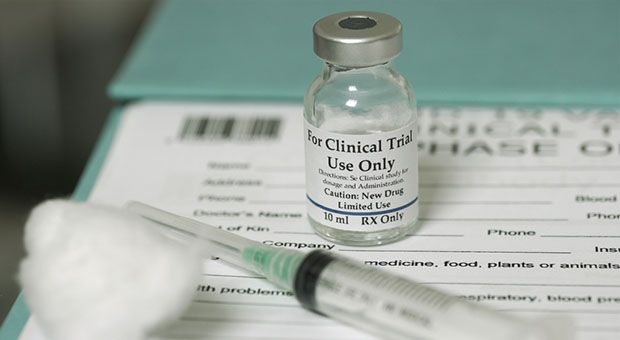Karen Crowdy and Linda Everard named first BHP People award winners
The BHP People award is a new reward and recognition scheme from Birmingham Health Partners, designed to shine a spotlight on our colleagues who play a vital role in the success of clinical trials and research studies, and whose work is integral to groundbreaking scientific endeavours.
By championing individuals including research nurses, statisticians, pharmacists and many others, BHP People also highlights the incredible diversity of careers in research and the essential contributions that these professionals make. As well as celebrating individual excellence, the initiative reflects the shared dedication of our diverse partner organisations to driving collaborative research.
The inaugural BHP People award winners are:
- Dr Karen Crowdy, Director of Research Strategy and Operations at the Aston Institute of Health and Neurodevelopment (IHN). Karen has been recognised for her outstanding contributions to research delivery, collaboration, training, and culture, as well as her transformative impact on IHN’s growth and success.
- Linda Everard, R&D Implementation and Performance Manager at Birmingham and Solihull Mental Health NHS Foundation Trust. With a passion for mental health research and service improvement, Linda has been recognised for ensuring that as many service users as possible have access to clinical trials and high-quality research.
Nominating Karen, Aston University’s Professor Claire Farrow, Deputy Dean Research and Enterprise in the College of Health and Life Sciences, said: “As a result of Karen’s work the Institute of Health and Neurodevelopment is thriving. She supports academics to deliver a programme of pioneering research into paediatric conditions such as epilepsy, child brain tumours, and neuro-immunological diseases, leading to the development of personalised interventions that will make a difference to health care professionals, families and children.
“Much of the research that she supports also tackles critical health challenges in the Birmingham area, including respiratory health, child obesity, and diabetes, ensuring research has a direct impact on health inequalities.”
Beyond her strategic influence, Karen understands what makes a great research culture and has spearheaded multiple initiatives to bring together researchers, support early-career researchers, negotiate cotutelle agreements, and stimulate research collaboration and discussion.
Professor Farrow added: “Karen’s creativity combined with exceptional organisation and drive have positioned IHN as a leader in advancing personalised interventions and evidence-based healthcare solutions for children and families. She is a very worthy winner of this award, exemplifying the core values of the BHP People scheme.”
We sat down with Karen to find out a little more about her career journey to date, and how vital cross-organisational collaboration is to research in Birmingham – read her story here: “BHP People – find your niche.”
Linda was nominated by BSMHFT’s Head of Research and Development, Emma Patterson, who said: “Without Linda, we quite simply would not be able to run clinical trials. She leads a highly skilled, enthusiastic and motivated team and provides them with opportunities to expand their knowledge and skills by developing their own research.
“She plays a crucial role in training and mentoring the next generation of investigators, supporting new PIs as they take on NIHR portfolio trials and guiding them toward becoming future Chief Investigators. Thanks to her dedication, our research portfolio continues to grow, reaching new clinical areas and broadening opportunities for both staff and service users.
“Beyond her operational impact, Linda is deeply committed to making high-quality research accessible to as many service users as possible. As a co-founder of the Trust’s Lived Experience Action Research (LEAR) Group, she has helped ensure that service users are involved at every stage of research development and delivery. She continues to drive innovation by establishing research champions and engaging underrepresented communities, making her an invaluable force in the advancement of mental health research.”
We met with Linda to find out a little more about her journey from clinical psychology to research delivery, and how she is embedding a culture of research at BSMHFT. Read her story here: “BHP People – research is everyone’s business.”
The BHP People award will be presented quarterly, focusing on a different pair of member organisations each time.





